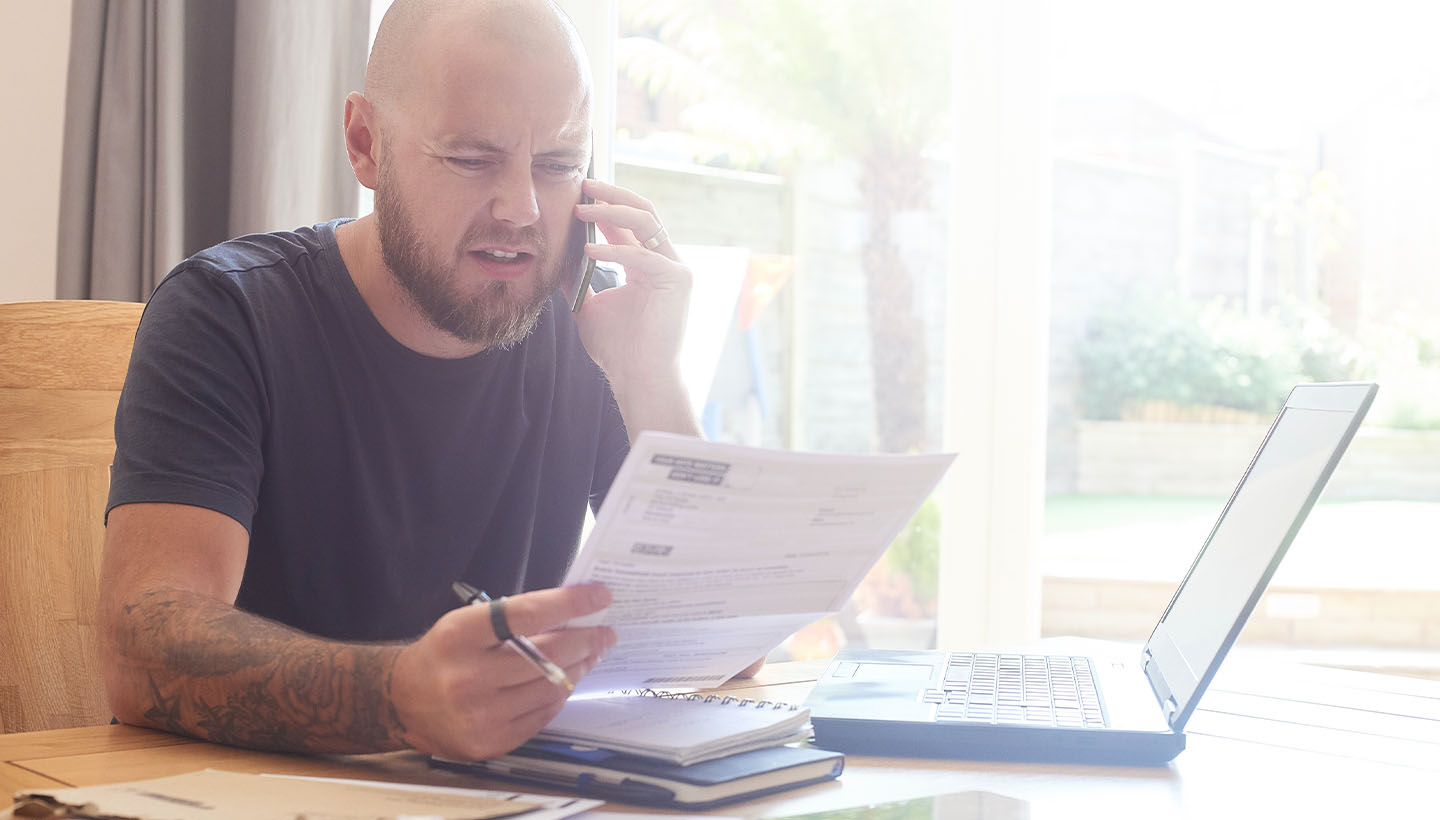
How Long is a Home Inspector Liable for Missing Major Inspection Problems?
When you buy a house, you’ll likely get a home inspection. Home inspections are safeguards that help you understand the existing condition of a home, so you can decide whether it’s a good investment. Most of the time, your home inspector will succeed in finding all the major issues you should know about.
But what happens when they don’t? Is your home inspector liable? If so, for how long?
These are big questions with a lot of caveats. Let’s unpack home inspector liability.
First, Understand the Home Inspector’s Objective
First, it’s important to understand the home inspector’s objective.
A home inspection is a non-invasive, visual examination of the accessible areas of a residential property, performed for a fee, which is designed to identify defects within specific systems and components defined by Standards that are both observed and deemed material by the inspector. The scope of work may be modified by the Client and Inspector prior to the inspection process.
Source: International Association of Certified Home Inspectors (InterNACHI™) Home Inspection Standards of Practice
Think of a home inspection as a high-level check of a home’s overall condition. It’s meant to give a homebuyer or a seller more information about the property. Find out more about what’s usually included in a home inspection in this blog.
Remember, Home Inspections Are Limited in Nature
A key point to remember is that home inspections are not exhaustive. They’re limited by design. The general limitations and exclusions of an inspection are usually detailed in the Standards of Practice (SOPs) inspectors follow. They’re also typically detailed in a pre-inspection agreement. This is a contractual legal clause known as a Limitation of Liability.
For reference, here are InterNACHI’s limitations in its SOPs and those of the American Society of Home Inspectors (ASHI). Plus, here’s an example of a standard Limitation of Liability clause.
Limitations mean that even the best home inspectors – the ones who are licensed and/or certified in home inspection – might still overlook deeper issues that are beyond a visual inspection. It’s part of the job, and in these cases, the inspector generally isn’t liable for missing issues.
The Most Commonly Missed Home Inspection Issues
The most overlooked home inspection issues – for any reason – include:
- Heating, ventilation, and air conditioning (HVAC) system problems
- Electrical system malfunctions
- Structural issues
- Foundation problems
- Roofing concerns
- Water leaks and moisture issues
- Septic system problems
- Pest infestations
While these issues might not be found in a visual, non-invasive home inspection, they would certainly be uncovered in an exhaustive one. This is also why home inspectors often recommend a deeper inspection by a specialist if they suspect problems beyond their observation.
Can a Home Inspector Be Sued Over a Missed Issue?
Yes, a home inspector can be sued over a missed issue. But the bigger question is will they? There’s a variety of factors that come into play if you suspect a home inspector missed something big.
If you are the client, ask these questions first:
- Did your home inspector follow the SOPs?
- Were you made aware of the limitations of the inspection in a pre-inspection agreement prior to the inspection?
- Is there a reason for you to believe the home inspector was negligent when performing their inspection?
If your home inspector followed visual home inspection standards and missed something beyond this scope, there are likely no legal grounds to sue. But if you can prove the home inspector was negligent when performing the inspection, you might have a case.
In either scenario, it’s best to reach out to an experienced real estate attorney to understand your rights.
How Long Could a Home Inspector Be Held Liable For a Missed Issue?
The duration of a home inspector’s liability depends on one big factor: state law.
Currently, only 35 US states have laws governing home inspectors. These are also the states where home inspectors are required to undergo home inspection training and earn licenses. In these states, the home inspector’s statute of limitations runs anywhere from a couple years to five or more.
Legal Actions and Consequences For Home Inspectors
If you can prove that a home inspector was negligent when performing their home inspection, you could have legal grounds to sue. But this is generally only the case if you can prove your home inspector didn’t follow SOPs and/or did not adhere to a pre-inspection agreement you signed.
If legal action is taken, a home inspector could be held liable for the cost of repairing the overlooked issue, the full cost of the inspection, or more. Plus, if you live in a home inspector licensing state, a home inspector found to act negligently could risk losing their license.
5 Steps to Take When a Major Issue Is Missed During a Home Inspection
If you suspect your home inspector missed something major during your home inspection, there are a few steps you should follow.
#1: Do Your Research
Review your pre-inspection agreement, look for limitations and exclusions, examine the Standards of Practice, and research your state’s home inspection laws. It’s best to be informed first.
#2: Communicate With Your Home Inspector
Reach out to your inspector with your inspection report in hand. Ask questions about the issue you’ve found, determine what the inspector concluded during their inspection. Does it seem like they made a mistake? Listen to their perspective. Maintain a calm and collaborative rapport to get the answers you need.
#3: Work With Your Inspector to Evaluate the Missed Inspection Item
If you determine your home inspector did miss a big item on the inspection, work with them to fix it. Often in these situations, a home inspector will offer to cover the cost of a repair, refund some or all the inspection fee, and/or pay to consult with a specialist to fix the issue. Work together to solve the problem before escalating it.
#4: Consult With a Real Estate Attorney
If you can’t find a solution with the help of your home inspector – and you feel you have legal grounds for a case of negligence – consult an experienced real estate attorney. An attorney can give you more specifics on your state’s liability law for home inspectors, help you review your pre-inspection agreement, check the SOPs, research similar cases, and more.
#5: Understand Seller Disclosure Requirements
Additionally, research seller disclosure requirements in your state. When you purchase a property, many states have laws requiring sellers to inform buyers of major past or present issues with a home. Your legal case may fall under this category if the seller broke a state law and did not disclose a big issue before your purchase. In this scenario, your case may involve a seller and/or their real estate agent. Discuss this possibility with your real estate attorney.
What Role Does Errors and Omissions Insurance Play in a Home Inspection?
Like other licensed professionals, every home inspector should carry Errors and Omissions (E&O) insurance. In fact, in many states, it’s the law. E&O insurance protects the home inspector financially in case they make a professional mistake. No one is perfect, and mistakes happen.
Hiring a home inspector who carries E&O insurance guards you, the client, as well. Should your home inspector make a mistake and miss something important they shouldn’t have, their E&O policy will compensate you if you make a claim against them.
Learn more about E&O insurance for home inspectors and how it works in this blog.
The Role of Real Estate Agents in Recommending Home Inspectors
Real estate agents can recommend home inspectors – and they often do it as a service to clients. But you don’t have to take their recommendation, especially if you’re concerned about the qualifications of the inspector. You may feel more comfortable doing your own research and finding an independent, reputable, licensed or certified inspector. You can’t always be sure if your real estate agent has properly vetted an inspector (though ethically they should).
How to Choose a Reputable Home Inspector
Choosing a home inspector is a big decision for many homebuyers – and it’s often a decision made while the clock is ticking during an inspection contingency period. But time constraint or not, it’s important to vet the home inspector you choose. Choosing a licensed or certified home inspector who is trained in the Standards of Practice reduces the risk of missed issues.
Chris Kjeldsen, an AHIT technical trainer and a seasoned Colorado home inspector, shares these tips for choosing an experienced, knowledgeable home inspector when you need one.
Choose a Trained Home Inspector
Make sure the home inspector is trained. Ensure they have completed a licensing or certification program and know the Standards of Practice. Plus, if you live in a state where a home inspector license is required, make sure the inspector has a valid one.
Review a Sample Home Inspection Report
Ask to see a sample home inspection report before hiring the home inspector. Plus, ask about the Standards of Practice they follow. The differences in a home inspection report that follows SOPs and one that doesn’t are big.
Don’t Choose Solely Based on Price
Don’t decide on a home inspector solely on price or the “bells and whistles.” Instead, do these things:
- Verify the certification and/or license of the inspector. In license states, you can usually look up a home inspector’s license on a state website. If you’re in a non-license state, ask about the training programs the inspector has completed.
- Find out how many homes they’ve inspected. This gives you an idea of their experience.
- Ask if they carry E&O and general liability insurance. As mentioned above, they should – for their financial protection and yours.
- Ask if they complete Continuing Education (CE) courses regularly. This shows the inspector’s dedication to staying fresh on techniques.
Additionally, Chris adds:
- Clients should read and understand the Standards of Practice themselves. These can easily be found. The most popular (and very similar SOPs) are InterNACHI’s and ASHI’s.
- Ask how long the inspector is generally onsite. A quality home inspection for most houses should take three to four hours. If the inspection is done in two hours, you might wonder, what didn’t get inspected?
Learn More About Home Inspection with AHIT
If you’re looking for a qualified home inspector, you can’t go wrong with an AHIT-trained inspector. And if you want to learn more about becoming a home inspector, AHIT teaches you the fundamentals! Develop your skills, get licensed in your state, and build a successful home inspection career with AHIT.




